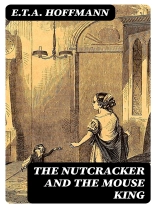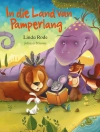In E.T.A. Hoffmann’s enchanting tale, ‘The Nutcracker and the Mouse King, ‘ readers are transported to a fantastical realm where dreams and reality intertwine. Through a rich narrative imbued with elements of Romanticism and elements of the Gothic, Hoffmann weaves a story that illuminates the struggles between good and evil, exploring themes of childhood innocence and the power of imagination. The text is characterized by its intricate characterizations and imaginative prose, drawing readers into a vivid world where nutcrackers become heroes and enchanted kingdoms come alive. Hoffmann’s narrative serves not only as a festive holiday tale but also as a profound meditation on the complexities of the human condition and the dualities of nature. E.T.A. Hoffmann, a luminary of German Romantic literature, was deeply influenced by the cultural currents of his time, including the burgeoning interest in fairytales and the supernatural. His varied career as a composer, critic, and jurist informed his narrative style, facilitating a unique blend of whimsical storytelling and darker, psychological undercurrents. Hoffmann’s personal experiences with love, loss, and the mysteries of the subconscious profoundly shaped his artistic vision, making ‘The Nutcracker and the Mouse King’ a reflection of his multifaceted genius. This timeless tale is a must-read for lovers of fantasy and those intrigued by the darker aspects of fairy tales. It not only epitomizes Hoffmann’s ability to merge profound themes with lively narrative but also offers readers a glimpse into the transformative power of storytelling. Whether enjoyed during the holiday season or as a classic piece of literature, ‘The Nutcracker and the Mouse King’ promises to captivate readers of all ages.
Over de auteur
E.T.A. Hoffmann, born Ernst Theodor Amadeus Hoffmann (January 24, 1776 – June 25, 1822), was a prolific German author of the Romantic period who made seminal contributions to the literary world with his gothic and fantastical narratives. A man of many talents, Hoffmann was also a composer, music critic, draftsman, and caricaturist. His narratives often explored the complex interplay between reality and imagination, reflecting his fascination with the uncanny and supernatural. Among his numerous works, ‘The Nutcracker and the Mouse King’ (1816) stands out as a particularly influential tale. This story was later adapted by Alexandre Dumas and then famously transformed into a ballet by Pyotr Ilyich Tchaikovsky, perpetuating Hoffmann’s legacy. Hoffmann’s literary style is characterized by his extraordinary skill in blending the ordinary with the bizarre, thus challenging the perceptions of his readers. Laced with irony and satire, his writing delves into the darker aspects of the human psyche, earning him a position as a critical figure in the genre of fantasy literature. His psychological depth and innovative use of the supernatural significantly influenced later writers, including Edgar Allan Poe and Jules Verne, thereby cementing Hoffmann’s stature as a pioneer in the development of the fantasy genre.












